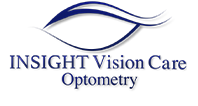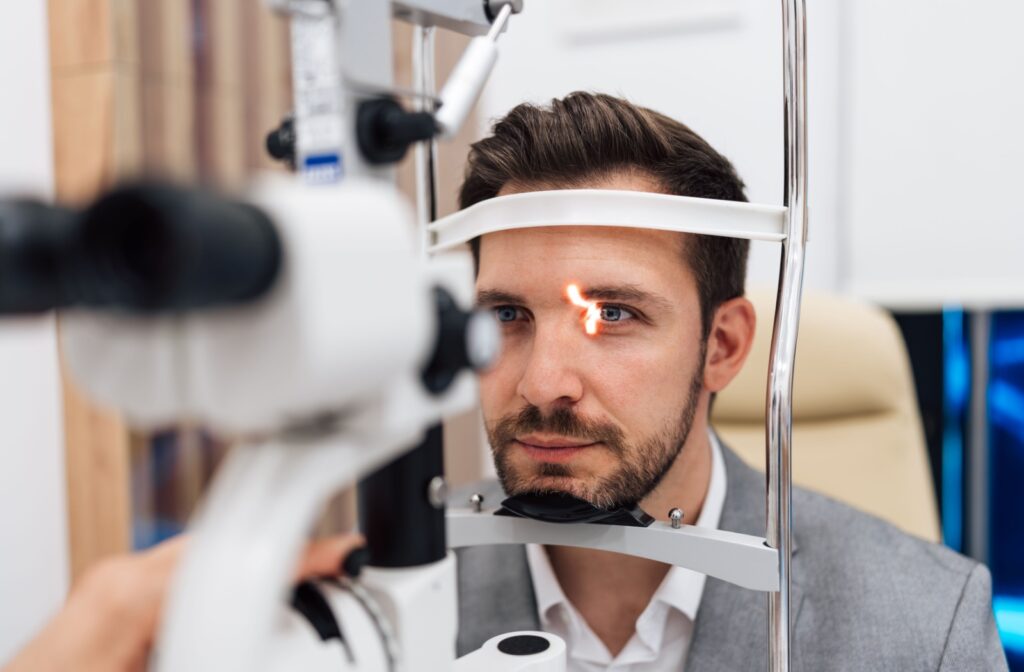When was the last time you scheduled an eye exam? If you can’t recall, you’re not alone! Many adults overlook the need for regular eye check-ups, even though comprehensive eye exams can help identify conditions like dry eye or eye disease.
The extent to which eye exams are covered by insurance depends on whether you just have health insurance or specific vision insurance. While health insurance may or may not cover eye exams, vision insurance is designed for eye care and should cover annual exams.
Understanding the scope of your coverage can help prioritize eye care without worrying about unexpected expenses.
Understanding Eye Exam Coverage
In the United States, health insurance coverage for eye exams can vary significantly depending on your specific plan. Generally, standard health insurance plans don’t cover routine vision care, such as regular eye exams or vision correction services like glasses or contact lenses. Instead, these services are typically covered by separate vision insurance plans, which offer specific benefits tailored for providing eye care.
Vision insurance may include annual eye exams, discounts on eyewear purchases, and allowances for contact lenses. Different policies have different benefits, so you’ll need to review the details of your insurance plan to determine what eye care services are covered.
Some employers offer vision insurance as part of their benefits package, which can be a cost-effective way to handle vision care expenses.
Health Insurance vs. Vision Insurance
Health Insurance
Most health insurance plans focus on major medical care and may cover eye exams when they’re part of a comprehensive medical service. For instance, if an eye exam is necessary due to diabetes or other health conditions affecting your vision, your health insurance might provide coverage. However, for routine eye exams, these plans generally don’t offer coverage unless otherwise mentioned.
Vision Insurance
Vision insurance, on the other hand, is designed to cover routine eye care. Plans like VSP, EyeMed, and others often provide coverage for annual eye exams, eyeglasses, contact lenses, and sometimes discounts on LASIK or other corrective surgeries.
Why Regular Eye Exams Matter
Eye exams are crucial for detecting issues that could lead to vision loss if left untreated. Conditions like glaucoma, cataracts, and macular degeneration often present few symptoms in their early stages, but can be detected during comprehensive eye exams. Additionally, regular exams can identify systemic health issues like diabetes and hypertension, which can manifest in the eyes.
The Cost of an Eye Exam
Forbes reports that the Vision Service Plan (VSP) estimates the average cost of an eye exam without insurance at $184, depending on the provider and complexity of the exam. While it might seem tempting to skip these exams in order to save money, remember that early detection of vision problems can prevent costly treatments in the future.
Finding Vision Care That Fits Your Needs
If your health insurance plan doesn’t cover routine eye exams, and if you don’t otherwise have vision insurance, consider exploring affordable options for quality eye care. Some alternatives include: checking for discounted or sliding scale clinics, looking for vision discount plans, considering retail optical chains, considering university and teaching hospitals, and exploring free vision screenings. By utilizing these resources, you can find affordable, quality eye care for yourself and your family without breaking the bank.
How to Check if Your Eye Care is Covered
To maximize your benefits and minimize costs, check with your insurance provider to understand the specifics of your vision coverage. Here are a few tips:
- Review Your Plan: Carefully read through your health and vision insurance policies to see what’s covered. Look for any mention of eye exams, corrective lenses, or specific conditions that might warrant coverage.
- Ask Questions: Contact your insurance provider directly to clarify any ambiguities regarding your coverage. They can provide detailed information about what your plan includes.
- Consider a Vision Plan: If you frequently need vision care, a vision insurance plan may be worthwhile. Compare different plans to find one that best suits your needs.
- Budget Wisely: Set aside funds for routine eye exams if these aren’t covered by your insurance. Investing in your vision health now can save you from larger expenses down the line.
Take Action Today
At Insight Vision Care, our staff is committed to helping you maintain healthy vision. We bring 40+ years of experience in the Walnut Creek community, which we combine with compassionate care and community involvement to build and maintain a sense of trust with everyone who walks through our doors. With flexible hours, including some evening and Saturday availability, we’re committed to helping you fit an eye exam into your busy schedule.
Prioritizing your eye health is an investment in your overall well-being. Whether through vision insurance or budgeting for out-of-pocket expenses, ensure you get the eye care you need. If you’re due for an eye exam or have questions about your vision health, book your appointment today and take the next step toward healthier vision.



